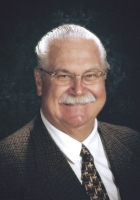Top 10 Fundamentalist Stories of 2006
 Note: This is an opinion column. Views expressed here are those of the author and not necessarily those of SI.
Note: This is an opinion column. Views expressed here are those of the author and not necessarily those of SI.
Discussion
Fundamentalists and Theater: Act Three, Say What?

In spite of my perplexity about theater, the truth is that occasionally I still see it. I am assaulted with it on airliners. I am exposed to it in other people’s homes. Other circumstances also arise.
Discussion
Copland, Pluralism, and Musical Meaning: Implications for Christian Aesthetics
Aaron Copland was a composer, not an aesthetician or theologian. But as the honorary “Dean of American Composers,” he was often called upon to discuss musical meaning, and his thoughts on the matter were well-informed, both by his study and experience. In the view of this writer (also an American composer, but of a much smaller order!), Copland’s ideas have great value for Christians who make aesthetic judgments in accordance with Scriptural revelation. In a 1951 speech at Harvard, Copland said,
Discussion
Fundamentalists and Theater: Act Two, So What?

They say that confession is good for the soul. Well, here’s my confession.
I love the theater.
I fell in love during my junior year in high school. On a whim I tried out for a school play and somehow ended up with a lead role. That was a turning point in my life. Acting was the first thing I discovered that I could do really well.
Discussion
"One of the most interesting features of Dalhouse’s work is his sense that the BJU practice of separation was not always what it came to be, but instead was intensified during the presidency of Bob Jones Jr."
Body
Discussion
UPDATE: Neal Jackson Pastor, Lloyd Streeter Co-Pastor of Campus Church
Body

SI has obtained a copy of an official email sent to the PCC Alumni Association.

PCC Alumni Association
December 11, 2006
Sunday, December 10, Dr. Horton made the following announcement to the Campus Church.
Discussion
Neal Jackson and Lloyd Streeter Announced as Pensacola Campus Church Co-Pastors
Body
Discussion
"'Shall the fundamentalists win?' In North America, they clearly did not. On a global scale, though, matters might develop differently."
Body
Discussion
Fundamentalists and Theater: Act One, Whatever Happened?

My parents came to Christ when I was about three or four years old. They responded to the witness of a home missionary who was planting a fundamental Baptist church in their small Michigan town. After they were baptized and joined that church, they brought up their children under the sound of its teaching.

Discussion